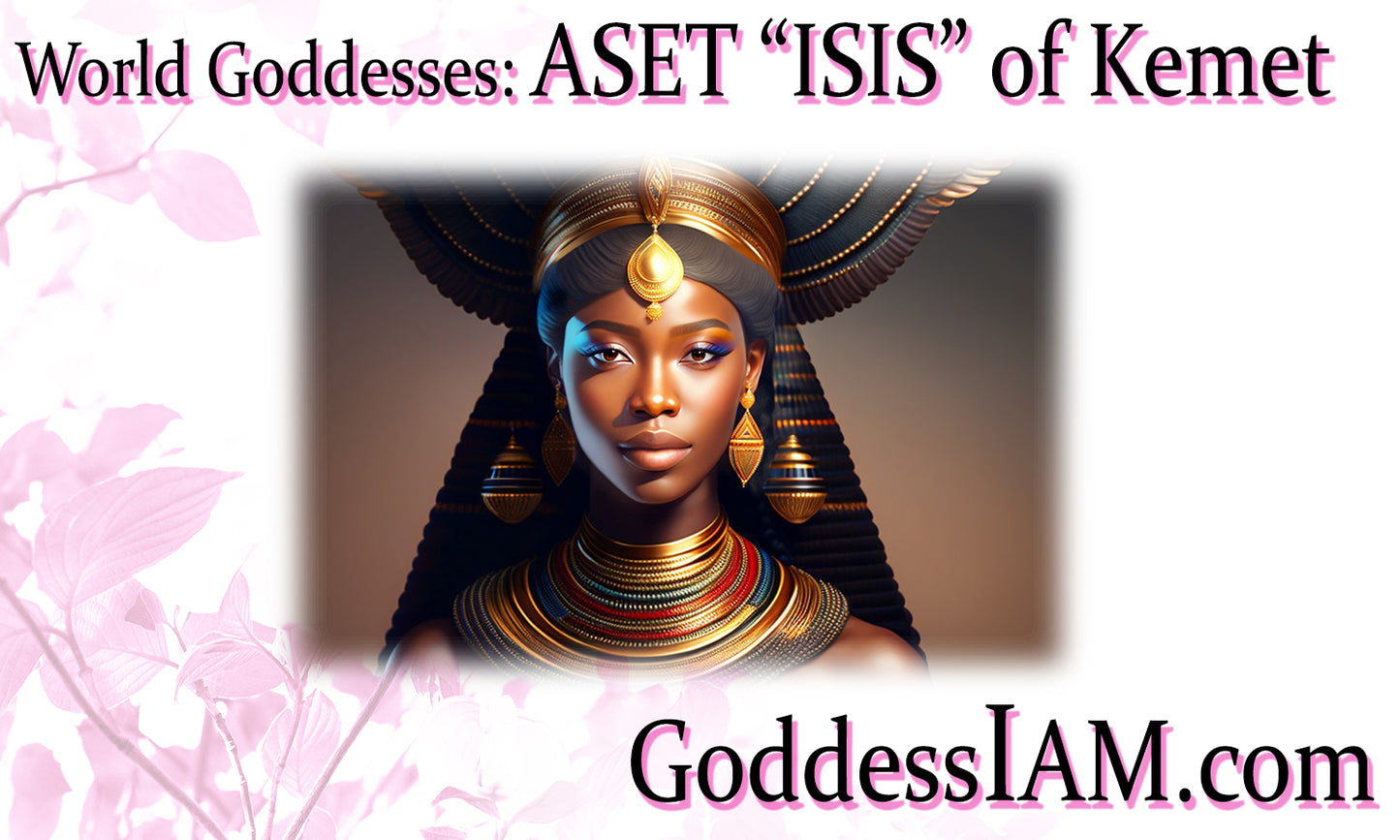
Throughout history, countless mythologies have celebrated powerful goddesses who embody various aspects of femininity. Among these revered figures is Goddess Aset, also known as Isis, a prominent deity in ancient Egyptian mythology. This essay aims to explore the divine essence of Aset and her profound relevance to women's issues, both in the past and in contemporary times.
Goddess Aset: The Divine Mother: In Egyptian mythology, Aset is widely regarded as the epitome of divine motherhood. She is the goddess of fertility, magic, and wisdom, and is often depicted as a nurturing and protective figure. Aset's association with motherhood, both in the physical and spiritual sense, highlights her profound connection to women's experiences and issues.
Fertility and Nurturing: As the goddess of fertility, Aset represents the transformative power of creation and childbirth. Her influence extends beyond physical fertility, encompassing the nurturing and growth of ideas, relationships, and spiritual endeavors. Aset's divine presence serves as a reminder of the unique capabilities and nurturing qualities inherent in women, encouraging their empowerment and self-expression.
Protector and Guardian: Aset's role as a protector and guardian is evident in her mythology. She is often depicted with outstretched wings, symbolizing her protective embrace. Aset's presence resonates with women who seek guidance and strength in navigating challenges and adversities. Her divine influence provides solace, support, and a sense of security, reinforcing the importance of women's empowerment and safety.
Wisdom and Magic: Aset is revered as the goddess of wisdom and magic. She possesses great knowledge and is renowned for her skill in using magic for healing, protection, and transformation. Aset's association with these mystical arts underscores the inherent wisdom and intuitive abilities that women possess. Her presence inspires women to embrace their inner wisdom, trust their intuition, and explore their spiritual potential.
Reclaiming Power and Identity: Aset's mythology reflects themes of loss, resurrection, and resilience. She embarked on a journey to resurrect her slain husband, Osiris, symbolizing the power of love, devotion, and determination. Aset's story resonates with women who have faced adversity and reclaim their power in the face of loss or oppression. She serves as a beacon of hope and strength, encouraging women to embrace their identity, rise above challenges, and reclaim their personal power.
Healing and Transformation: Aset's role as a healer is notable in her mythology, as she employed her magical powers to restore and revive. Women throughout history have played vital roles in the healing arts, both as caregivers and practitioners. Aset's influence emphasizes the importance of women's healing abilities and their capacity to facilitate transformation, not only in their own lives but also in their communities.
Contemporary Relevance: In modern times, there has been a resurgence of interest in goddess spirituality and the reclamation of feminine power. Aset's mythology and symbolism offer women a profound connection to their divine essence, inspiring self-confidence, compassion, and spiritual growth. Exploring Aset's teachings and incorporating her principles into personal and collective practices can foster a sense of empowerment, healing, and interconnectedness among women.
